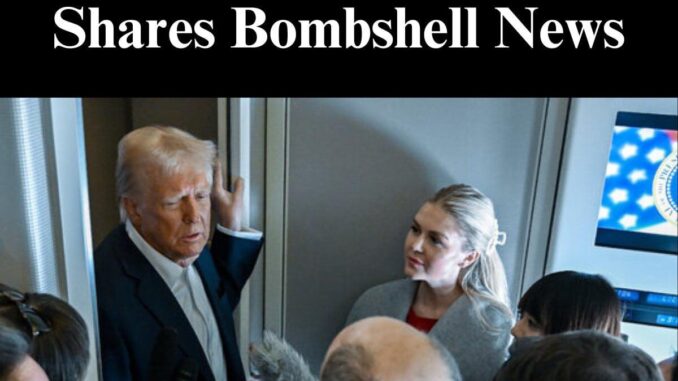
As the traditional milestone of the first 100 days of his presidency approaches, President Donald Trump declares that his take-no-prisoners attitude to US commerce will result in a far higher figure.
In an interview with Time magazine published Friday, he indicated that up to 200 accords have been completed or are in the works to reestablish the country’s trading connections with nations and firms all over the world.
Even when confronted with suspicious questions, he refuses to back away.
Eric Cortellessa, Time senior political correspondent, and Sam Jacobs, editor-in-chief of the magazine, conducted the interview on Tuesday in the White House.
Questions regarding Trump’s trade policies surfaced early in the visibly contentious discussion. The media reminded out that “13 days” had elapsed since trade advisor projected the potential of “90 deals” during which Trump had suspended his tariffs on nations other than China.
“There’s zero deals so far. Why is that?” the interviewers asked.
The wording of the question is clearly hostile, and Trump responded first by objecting to the premise, then going on with an announcement that might have come as a surprise.
“No, there are many deals,” Trump said.
“You have to understand, I’m dealing with all the companies, very friendly countries. We’re meeting with China. We’re doing fine with everybody. But ultimately, I’ve made all the deals.”
And it’s not just 90, according to Trump.
“I’ve made 200 deals,” he said.
While Time observed that no deals had been disclosed, Trump stated that they will be publicized in “three to four weeks.”
That would result in an avalanche of changes in U.S. commerce with the rest of the world, and Trump projected that the agreements will change the rules of the game to the favor of the United States.
Trump compared the country to a “department store,” with the “departments” probably representing the markets that countries and firms throughout the world seek for their goods, and stated that discussions with other organizations would be based on certain components.
“Do they charge us tariffs? How much are they charging us? How much have they been charging us? Many, many different factors, right,” he said. “How are we being treated by that country? And then I will set a tariff. Are we paying for their military? You know, as an example, we have Korea. We pay billions of dollars for the military. Japan, billions for those and others.”
He acknowledged that some of the deals will likely require some fine-tuning as they take effect, but he made it clear to the Time interviewers and the global audience of politicians and business leaders he knew would be reading that he saw the U.S. as the one in position to make the decisions.
“We’re a department store, a giant department store, the biggest department store in history,” he said.”Everybody wants to come in and take from us. They’re going to come in and they’re going to pay a price for taking our treasure, for taking our jobs, for doing all of these things.
“But what I’m doing with the tariffs is people are coming in, and they’re building at levels you’ve never seen before. We have $7 trillion of new plants, factories and other things, investment coming into the United States. And if you look back at past presidents, nobody was anywhere near that. And this is in three months,” Trump added.
Trump has had an action-packed three months on many fronts, including his remaking of the US military, American support for Israel in its war against the Hamas terrorist group (though Israel was not exempt from Trump’s tariff strategy), attempts to bring some kind of peace to Russia’s war against Ukraine, and dealing with Tehran’s global terror sponsors.
However, if Trump’s forecast about the agreements comes true, the next “three to four weeks” might be critical to the following three to four years of his administration.
Leave a Reply